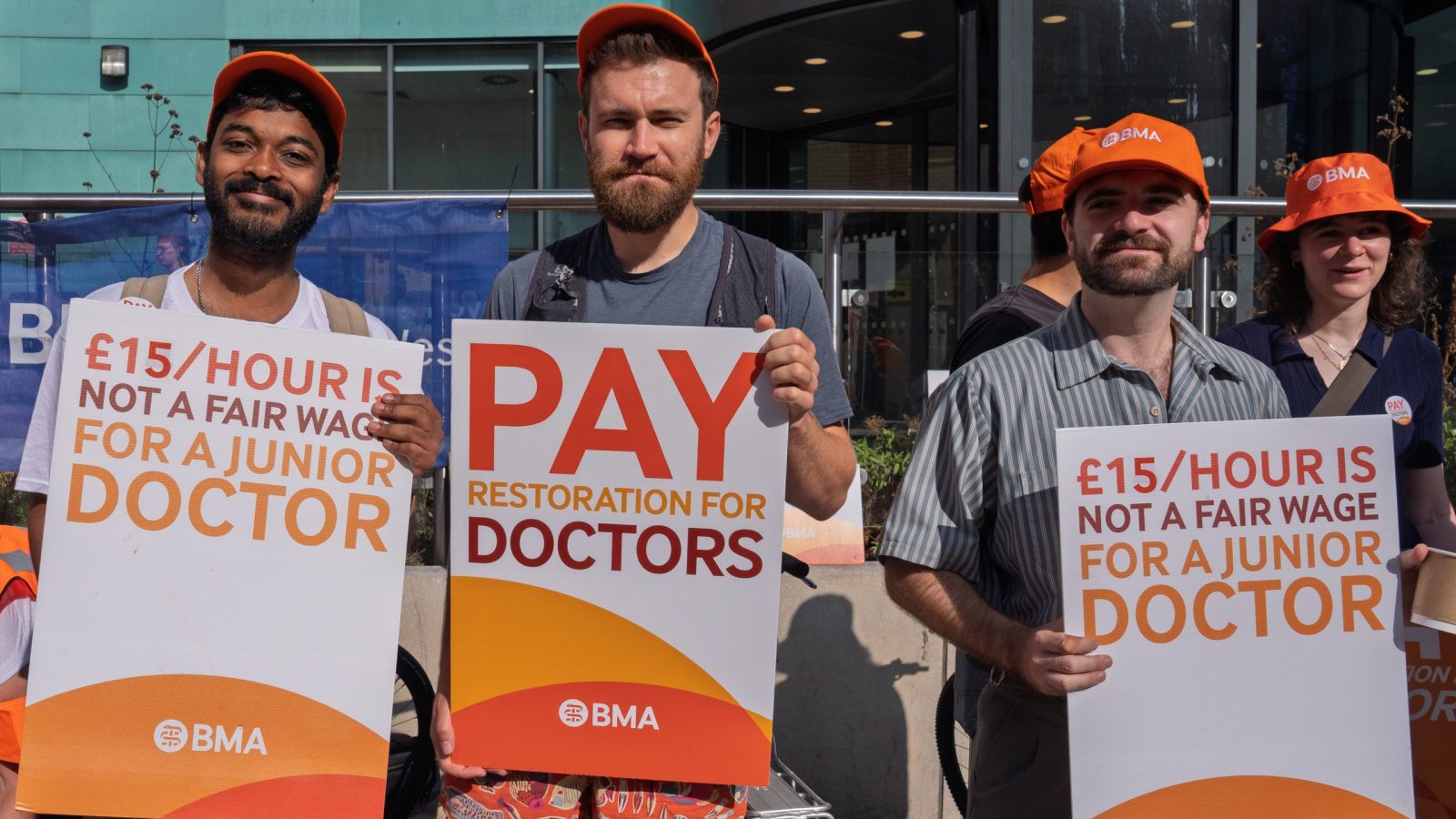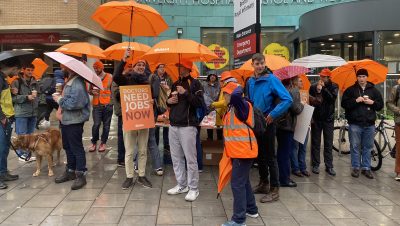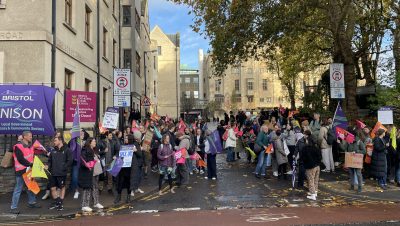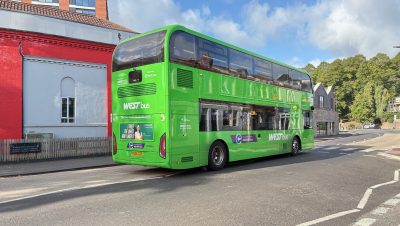News / Strike
Resident doctors strike in Bristol
As dozens of resident doctors prepared their placards in front of Bristol Royal Infirmary (BRI) on Friday morning, a cyclist in a high-vis vest cried out, “Go back to work, you greedy cunts.”
He was in the minority, however, as many passersby applauded the protesters and motorists honked their horns in support of the five-day resident doctor strike.
The British Medical Association (BMA) say that pay for resident doctors (formerly known as junior doctors) in England is down by a fifth since 2008 once inflation is taken into account.
is needed now More than ever
They are asking for the government to raise resident doctor salaries by 29.2 per cent to bring salaries back in line with 2008 levels.
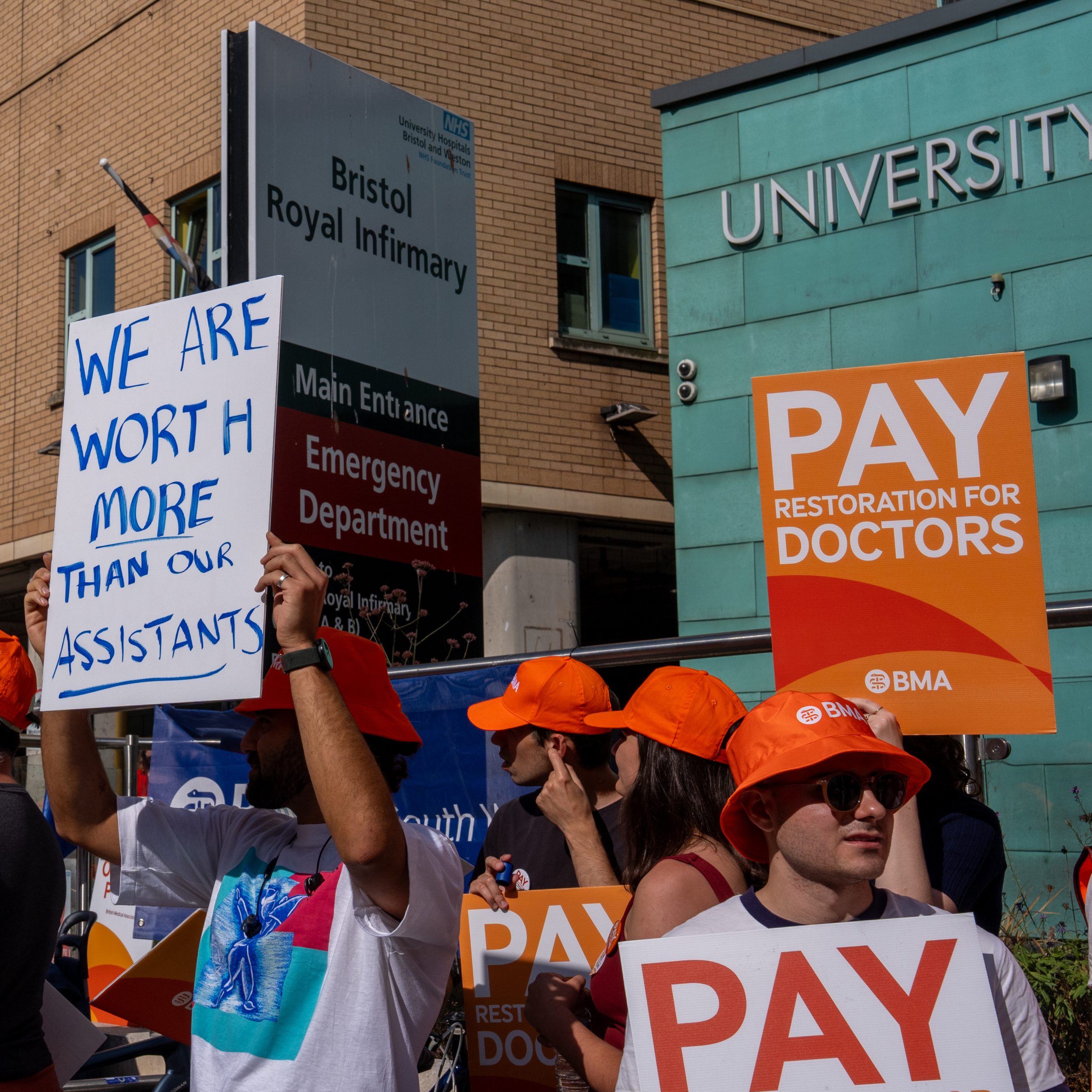
The BMA say that resident doctors with two years of experience, who earn £18.62/hour, are often out-earned by non-medically qualified assistants, who earn £24/hour
Earlier in July, 90 per cent of resident doctors voted in support of taking strike action in a BMA ballot.
Negotiations between the government and the BMA broke down on Tuesday, leading to the BMA going ahead with the nationwide strike.
The strike began at 6.59am on Friday and will end at 6.59am on Wednesday.
The picket in front of the BRI took place from 9am to 11.30am on Friday.
The afternoon before the strike, health secretary Wes Streeting wrote a letter to resident doctors where he said he did not believe BMA leadership had entered into negotiations in “good faith”.
He added: “The tragedy of our current situation is that the BMA resident doctors committee has chosen the path that will lead to the government and the NHS paying the price for strikes.”
Later, on Thursday evening, prime minister Kier Starmer wrote an op-ed in The Times criticising BMA leadership for having “rushed into strikes”, arguing it was a “a huge loss for the NHS and the country”.
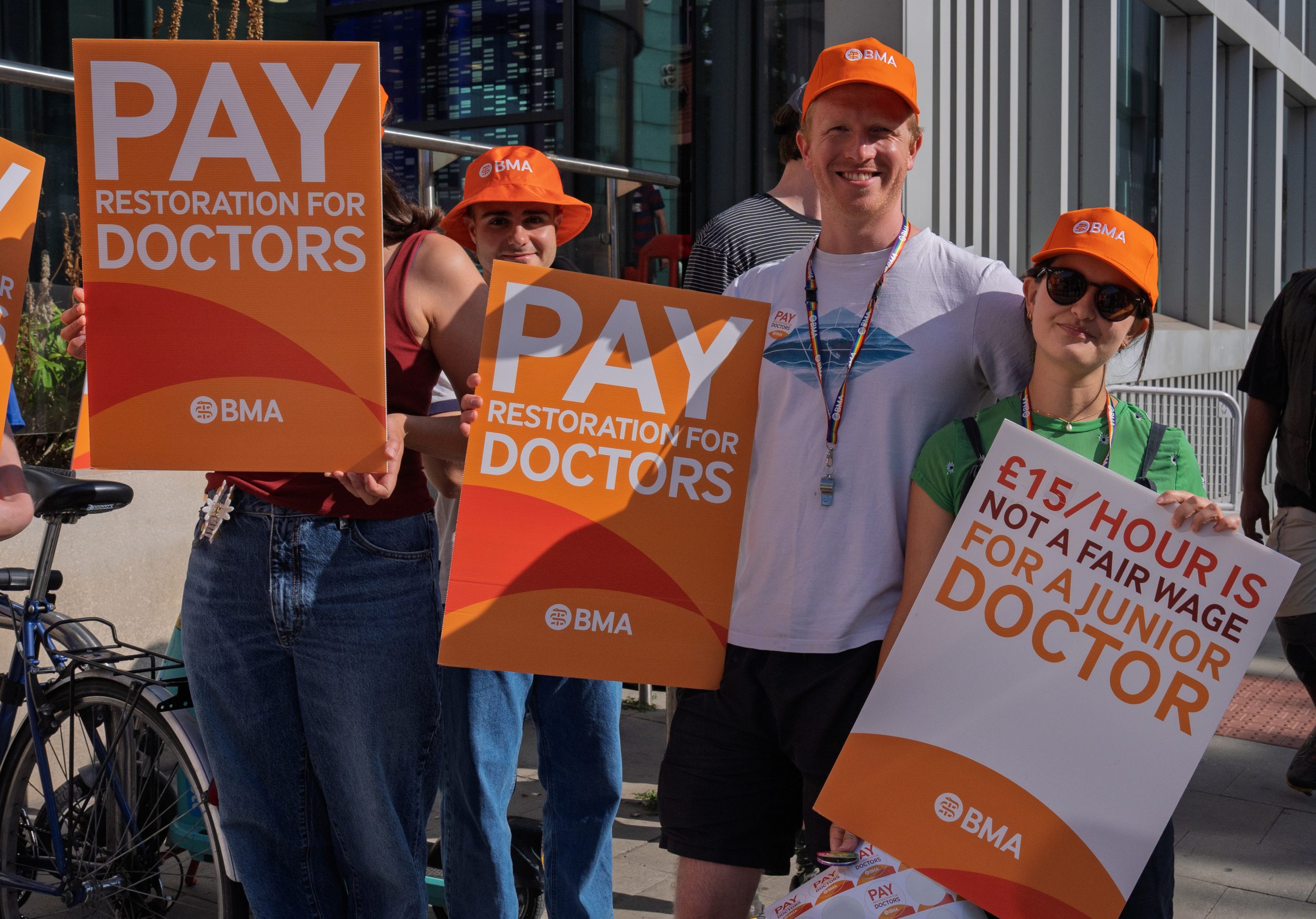
Dozens of resident doctors joined a picket in front of the BRI on Friday morning
In Bristol, however, protesting doctors disagreed with the prime minister and the health secretary.
Niall McPaul, a foundation year two resident doctor at Yeovil Hospital and local media spokesperson for the BMA, said: “Wes Streeting had the chance to negotiate.
“We announced our ballot weeks ago and Wes Streeting had time, during that ballot, where he could have come to the table.
“He waited until we returned a positive outcome, where we could threaten him with strikes, to actually even talk to us. Then he said, ‘Oh no, there’s not enough time to come to a deal’.
“Well, I’m sorry you had weeks and weeks to come and talk to us.
“We told you last year that we wanted a significant pay uplift that would take us towards pay restoration.
“So, we’re out here today to say we need a significant gesture, to say that he understands where we are, where we’re coming from and he is going to work with us to go towards a restoration.
“The important thing is that Mr Streeting comes to the table.”
Also among the protesters was a 64-year-old patient at the Bristol Royal Infirmary who, decked out in a bright orange BMA hat and colourful whistle, said: “I owe the BRI and the NHS nurses and doctors my life. They are so underpaid, it’s criminal. They deserve total respect and I don’t understand why the government aren’t helping them.”
Between 2023 and 2024, resident doctors in England participated in 11 strikes following disputes with the then Conservative government about pay.
Friday’s strike was the first BMA strike since Labour took office.
The five-day strike will end on Wednesday morning.
All photos: Rob Browne
Read next:
- Two NHS trusts move closer to merger
- Junior doctors join picket line at BRI to begin 11th strike
- Junior doctors join picket line at BRI to begin six days of strike action
.
 Our newsletters emailed directly to you
Our newsletters emailed directly to you